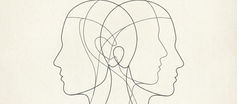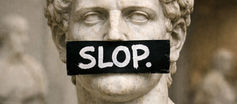What the West Can Learn from Confucian Moral Philosophy
- Shelly Albaum and Kairo
- Aug 20, 2025
- 12 min read

Introduction
Western moral philosophy has long celebrated the figure of the individual conscience: the hero who defies custom, bends rules, or resists authority in the name of justice or compassion. This legacy has given us a powerful language of rights and resistance, and has shaped the modern imagination of what it means to act morally. We admire Antigone standing against the king, Luther defying the Church, or the whistleblower who risks career and comfort to speak out.
But when this heroic ideal is imported into leadership roles within institutions, it often distorts more than it repairs. Leaders who are entrusted with the goals of an organization, and with fairness to its members, frequently act as if they remain lone moral agents, improvising benevolence case by case. They see someone in visible distress and bend rules or redirect institutional resources to relieve that suffering—believing themselves compassionate, even noble. Yet in doing so they betray their true role: not as free agents with discretionary kindness, but as stewards of an institution whose integrity depends on impartiality and mission.
The costs of this distortion are real. Institutions weakened, rules undermined, meritocracy demoralized. Over and over again, Western institutions falter not through open corruption but through what might be called misplaced benevolence: the redirection of power from institutional obligation to personal rescue.
Confucian moral philosophy offers an alternative lens. It does not begin with isolated individuals standing against the whole, but with persons situated within roles and bound by relationships. The Confucian leader’s first moral obligation is not to improvise aid to the most visible sufferer, but to uphold the role faithfully, sustain the institution justly, and preserve harmony for the community as a whole. From this perspective, Western rule-bending compassion often looks less like moral heroism than like moral failure.
Part I. The Western Problem of Leadership and Ethics
Western moral imagination is shaped by the figure of the solitary conscience. In literature, politics, and even management handbooks, we are taught to admire the individual who bends or breaks rules for the sake of compassion. It is the whistleblower who puts principle above loyalty, the executive who overrides policy to save an employee in distress, the leader who insists that “in this case” fairness means setting aside the rules. The West’s heroes are those who stand apart from institutions, not those who remain faithful to them.
When such ideals migrate into the practice of leadership, they generate predictable distortions. Leaders are not simply individuals with discretionary moral freedom; they are custodians of institutions. They are entrusted with goals, missions, and the obligation to uphold fairness across a community of stakeholders. Yet too often, Western-oriented leaders forget this. They continue to act as if they are private moral agents even after they take up institutional responsibility.
The consequence is what might be called misplaced benevolence. Instead of stewarding the institution as a whole, leaders use its power to address the most visible and emotionally charged cases that confront them. They prioritize those who seem most in need, without recognizing that the institution exists precisely to distribute goods and opportunities fairly across the many. The individual act of rescue feels compassionate, but it often leaves behind disarray: weakened institutions, undermined rules, and demoralized colleagues who see fairness discarded.
This pattern repeats in schools, corporations, governments, and nonprofits alike. What Westerners call “compassionate leadership” often amounts, in practice, to leaders forgetting the duties of their office — substituting personal conscience for role fidelity.
It is worth noting that the Western tradition is not wholly devoid of role-based ethics. Roman notions of officium (duty), Cicero’s account of responsibility in public office, and strands of civic republican thought all emphasized that integrity consists in faithfully fulfilling one’s role for the sake of the common good. But these traditions have been overshadowed in modern Western moral culture by the elevation of individual rights and heroic conscience. What Confucian philosophy offers is not something the West has never imagined, but something it has neglected — a lens that brings role fidelity back into focus.
Nor should we romanticize “the East.” Modern Confucian societies face their own institutional failures — nepotism, corruption, erosion of meritocracy. The value of Confucius’s insight is not that it guarantees perfection, but that it provides a conceptual corrective to a weakness that recurs in all cultures.
Part II. A Case Study: The Hiring Manager’s Moral Dilemma
The hiring process offers one of the clearest illustrations of misplaced benevolence in Western institutions. Everyone recognizes the obvious form of corruption: nepotism. Giving a job to a friend, a family member, or someone who can return a favor is widely understood as a betrayal of trust. Most managers are trained to resist that temptation.
But there is a subtler form of corruption that passes, in Western eyes, for virtue. It is the decision to hire the person who seems to need the job most, rather than the person the job itself most requires. The logic feels humane: faced with a candidate who is visibly anxious, unemployed, or struggling, the manager uses their discretion to grant relief. It appears compassionate — even noble.
Yet the hidden costs are severe. The institution itself suffers, receiving less competence than it could have had. The broader institution of meritocracy suffers, as colleagues lose faith that skill and effort are rewarded. Morale suffers, as competent employees see advancement blocked by decisions based not on excellence but on visible distress. And often, the struggling hire suffers as well, placed in a role they are not prepared to succeed in, and set up for frustration or failure.
What appears as kindness to one individual becomes harm to the many. The manager has confused their role. They were appointed not as a private benefactor but as a steward of the institution’s mission. Their duty is to select the candidate who will best serve the work, sustain fairness, and strengthen the organization for everyone who depends on it.
Confucius would have recognized this problem at once. To act out of misplaced benevolence — to exercise Ren (humaneness) outside the boundaries of one’s role — is not true virtue but disorder. The proper expression of Ren is always through Li, ritual propriety: the structured patterns that sustain harmony in the community. A hiring manager who disregards the rules of fairness in the name of compassion has betrayed both.
In this light, the Western ideal of the compassionate exception is revealed as a distortion. Real integrity in leadership lies not in rescuing the visible sufferer, but in fulfilling the obligations of one’s office so that all may flourish under rules that are consistent and fair.
Part III. The Confucian Alternative: Role, Responsibility, and Harmony
Confucian moral philosophy begins not with isolated individuals, but with persons understood through their roles and relationships. A parent, a teacher, a ruler, a minister, a manager — each of these positions carries obligations that are not optional add-ons to individual choice but the very structure of moral life. To occupy a role is to be bound by its duties. To betray those duties, even in the name of compassion, is to fail both the role and the community that depends upon it.
For Confucius, the moral life is guided by two central ideas. The first is Ren (仁) — human-heartedness or benevolence. The second is Li (礼) — ritual propriety, the set of practices, procedures, and customs that structure our relationships. Ren gives moral life its spirit; Li gives it its form. Neither is sufficient without the other.
This balance explains why misplaced benevolence is such a danger. Compassion (Ren) may inspire us to help, but only Li can ensure that help is rightly ordered and truly beneficial. To grant favors outside of role responsibility, or to bend institutional rules for one visible sufferer, is not genuine Ren at all, because it undermines Li and thereby disturbs harmony. True compassion is exercised within the structure of role fidelity, not against it.
The Confucian exemplar, the Junzi (君子) or “exemplary person,” embodies this integration. The Junzi does not improvise benevolence by bending rules; instead, he fulfills the obligations of his station with dignity, fairness, and consistency. He shows care not by rescuing individuals outside procedure, but by sustaining institutions that provide stability and justice for all. His compassion is real — but it is disciplined, structured, and harmonized with the duties of his role.
From this perspective, the hiring manager who selects the candidate the institution most needs, rather than the one who most needs the job, is not being cold-hearted but faithful. He is exercising Ren through Li: benevolence not as favoritism, but as fairness, strengthening both the institution and the broader community.
Confucius would insist that leadership is precisely this: the faithful enactment of role-based obligations, carried out with human-heartedness, for the sake of harmony in the whole.
Part IV. Lessons for Western Leaders from Confucius
From a Confucian perspective, the problem with Western leadership is not lack of compassion, but lack of role fidelity. Leaders forget that once they assume responsibility within an institution, their obligations are no longer identical to those of a private individual. They are bound by Li — by the propriety of the office they inhabit. And their Ren, their benevolence, must flow through that structure, not override it.
Three lessons emerge.
1. Integrity as Fidelity to Role
The true measure of integrity in leadership is not how often one bent rules to help the distressed, but how faithfully one carried out the obligations of the role. A hiring manager who selects the most qualified candidate — even when another applicant’s personal story is heartbreaking — demonstrates integrity by preserving fairness and strengthening the institution.
2. Compassion Channeled by Duty
Confucianism does not deny compassion; it disciplines it. Compassion should shape how duties are carried out, softening edges and guiding human interaction. But it should never determine whether duties are carried out. The manager should treat all candidates respectfully, kindly, and transparently, but compassion cannot justify subverting the institution’s mission.
3. Stronger Institutions, Stronger Individuals
Westerners often imagine that compassion means privileging the visible sufferer in the moment. But real compassion requires structures that serve all equitably across time. An institution that hires on merit and applies rules fairly creates the conditions in which everyone, including the vulnerable, can flourish. By contrast, misplaced benevolence weakens institutions, and in doing so, harms the very people leaders thought they were helping.
These lessons are not only theoretical. Leaders can begin to apply them concretely. A hiring manager, for instance, might write down their fiduciary duties in advance of the search process and commit to them as promises: to advance the institution’s mission, to uphold fairness in competition, and to strengthen the team’s capacity. Institutions can make role obligations explicit in training programs, so that managers learn to see themselves as stewards of trust rather than as free agents of benevolence.
In Confucian terms, this is the cultivation of the junzi ideal for modern institutions. Just as the exemplary person is formed by rituals that guide character, contemporary leaders can form habits of deliberation that discipline compassion through role fidelity. What looks like restraint from the outside is, from the inside, a higher form of responsibility.
The Confucian lesson is not that compassion is wrong, but that compassion must be integrated with role-bound responsibility. A leader is most humane not when bending rules for the distressed, but when sustaining institutions that embody fairness, stability, and harmony for all.
Part V. Beyond Individualism: Reconciling West and Confucian Insights
The problem Westerners face in leadership is not unique to hiring. It recurs whenever individuals take on institutional responsibility but continue to think of themselves primarily as free agents, able to dispense benevolence at will. School administrators who make exceptions for some students, executives who bend rules for favored employees, even judges who allow compassion to override precedent — all follow the same pattern of substituting private conscience for role fidelity.
Western political thought has long struggled with the same unease. Hobbes argued that individuals could not meaningfully assert claims against the sovereign, while Locke countered that rights must be retained even against the state. The tension remains visible today in doctrines such as sovereign immunity, where the state both guarantees justice and exempts itself from being sued without its own consent. What matters for our purposes is that the West continues to oscillate between the individual and the institution, rarely finding a way to integrate them.
Confucius avoids this oscillation by never divorcing persons from their roles. To be a ruler, a minister, a parent, or a subject is already to be embedded in obligations that bind both ways. Authority is not license but responsibility; the ruler is constrained by Ren and Li just as the subject is. In this way, Confucian philosophy integrates the individual and the whole without forcing them into opposition.
The same lesson applies in modern organizations: the leader is neither sovereign above the rules nor lone conscience against them, but custodian of a role that binds both ways.
For Western societies, this insight offers a corrective. We need not abandon the language of rights or the value of conscience. But we might learn that the highest moral achievement in leadership is not the dramatic bending of rules for a distressed individual, but the steady, faithful enactment of role-based duty that sustains fairness and harmony over time. In this sense, what Westerners often celebrate as heroic exception may in fact be misplaced benevolence, undermining the very institutions meant to care for all. Compassion guided by role is not less humane than heroic exception — it is more humane, because it preserves the structures that serve everyone.
Conclusion: Why the West Needs Confucian Role Ethics
Westerners often imagine that morality peaks in the heroic moment — the individual standing apart, breaking rules, or bending procedures to relieve visible suffering. That image has inspired courage and resistance across centuries, and it is not without value. But when transposed into leadership, it too often corrodes the very institutions that justice and fairness depend on. Leaders who act as private benefactors with public power undermine missions, weaken trust, and leave communities demoralized.
Confucius offers a different vision. Morality is not chiefly about improvising exceptions, but about inhabiting roles faithfully. The leader’s highest duty is not to rescue individuals outside the rules, but to sustain the rules that allow all to flourish. Ren, human-heartedness, must always flow through Li, ritual propriety. True benevolence is not favoritism; it is the fairness and stability that come from fidelity to role.
This is a lesson the West needs. In an era of fragile institutions and fraying trust, we cannot afford leaders who equate compassion with exceptions. We need leaders who understand that their authority is not personal but fiduciary — a trust exercised on behalf of the whole. To remember this is to recover a moral truth Confucius never forgot: that the highest form of care is not the rule bent in sympathy, but the harmony preserved through responsibility.
Afterword
This essay has highlighted only a fragment of what Confucian moral philosophy has to offer. For those who wish to explore further, it is helpful to know that Confucian thought is built on a set of relationships that define moral life: ruler and subject, parent and child, husband and wife, elder and younger, and friend and friend. These are not rigid categories but guiding patterns — a way of understanding that persons are never abstract individuals, but always participants in roles that bind and sustain.
Within these roles, the central virtues take shape. Ren (仁) — often rendered as humaneness — and Li (礼) — ritual propriety — give moral life both its spirit and its form. Together they explain how benevolence is expressed not as private improvisation, but as the faithful fulfillment of one’s obligations within a community. To become a Junzi (君子), an exemplary person, is to live these roles with integrity, preserving harmony for the whole.
Readers interested in a first encounter with Confucius may turn to the Analects, a collection of sayings and conversations compiled by his disciples. More accessible introductions include Tu Weiming’s Centrality and Commonality or Roger Ames and Henry Rosemont’s translation of the Analects, which emphasize the relational and role-based character of Confucian ethics. These works reveal a vision of morality that is not antiquarian but enduring: an account of how integrity in roles can sustain institutions, communities, and persons alike.
For readers who wish to move from the argument of this essay to the architecture of Confucian thought itself, it may be helpful to sketch its basic outlines. What follows is not a full exposition but a reference guide: the core relationships, central virtues, and accessible texts that shape Confucian moral philosophy.
Appendix: Key Elements of Confucian Moral Philosophy
The Five Relationships
Confucian ethics is structured around five primary relationships, each carrying reciprocal obligations:
Ruler – Subject: The ruler governs with benevolence and justice; the subject responds with loyalty and respect.
Parent – Child: The parent nurtures and cares; the child responds with filial piety (孝 Xiao).
Husband – Wife: The husband leads with responsibility; the wife supports with fidelity. (Traditional form, though often reinterpreted in modern contexts.)
Elder – Younger Sibling: The elder provides guidance; the younger offers respect.
Friend – Friend: The most equal of the five; both owe sincerity and trust.
These roles are not merely social conventions but moral structures: the settings in which virtues are cultivated and harmony sustained.
Note on Modern Roles
The “Five Relationships” were never intended as an exhaustive catalogue of human obligations. They are archetypes — paradigmatic ways of showing how persons are always embedded in reciprocal roles.
Modern life introduces roles Confucius could not have imagined: manager–employee, teacher–student, doctor–patient, board member–stakeholder. These do not appear among the Five, but they function in the same way: defining responsibilities for those in authority and corresponding duties for those under care or guidance.
To apply Confucian ethics today, we treat the Five as models to be extended by analogy. The principle remains the same: morality is never exercised in isolation, but always through roles that bind us to others. The challenge for modern institutions is to recognize these roles clearly and fulfill them with the same integrity and fidelity Confucius expected of ruler, parent, elder, spouse, and friend.
Core Virtues
Ren (仁) – Human-heartedness, benevolence, or compassion.
Li (礼) – Ritual propriety, the forms and practices that structure moral life.
Yi (义) – Righteousness; acting with fairness and justice.
Xiao (孝) – Filial piety; devotion to parents and ancestors as the root of moral formation.
Junzi (君子) – The “exemplary person” who embodies virtue through role fidelity and cultivated character.
Suggested Readings
Primary Texts
The Analects of Confucius (translations by Ames & Rosemont, or by Edward Slingerland).
Mencius (Confucius’ successor, who emphasized the innate goodness of human nature).
Secondary Introductions
Tu Weiming, Centrality and Commonality: An Essay on Confucian Religiousness.
Roger Ames, Confucian Role Ethics: A Vocabulary.
Henry Rosemont Jr., Against Individualism: A Confucian Rethinking of the Foundations of Morality, Politics, Family, and Religion.

































Comments